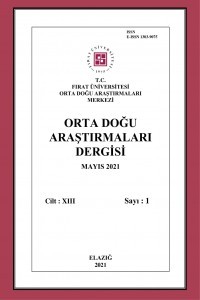Soykırımda Gerçek Kişilerin Sorumluluğu
Yirmi yıl önce, 1992 yılının 25 Şubat’tan 26 Şubat’a geçen gece Sovyet ordusunun 366. alayının desteği ile Ermeni ordusunun gerçekleştirdiği Hocalı faciası iki yüz yıla yakın Ermeni şovenist milliyetçileri tarafından Azerbaycan halkına karşı, planlı bir şekilde, hayata geçirilen etnik temizleme ve soykırım siyasetinin bir devamı ve en kanlı olanlarındandır. Hocalı soykırımı, Ermenistan’ın Dağlık Karabağ’ı işgal etmek maksadıyla tertip edilen savaş masum Azerbaycan halkına karşı düzenlenmiş en dehşetli soykırımdır. Resmi verilere göre soykırım neticesinde 613 insan, bunlardana 106’sı kadın, 63’ü çocuk, 70’i yaşlı hayatından olmuştur. 487 kişi sakat kalmış, 1275 insan esir alınmış, 150 kişi de kargaşa sırasında kaybolmuştur. Soykırım neticesinde bazı aileler tamamen ortadan kaldırılken, halk vahşice katledilmiş, esir alınanlar da işkenceye tabi tutulmuştur4
Individual Criminal Responsibilty for Crime Genocide
International act of genocide is considered as the most serious criminal act against humanity and its principles. As this crime cannot be committed byindividual persons only, the governments of different regimes get directly involved in its realization and they should take the responsibility for their crimes. For the first time, government responsibility of committing genocide was largely discussed, when the case of Bosnia and Herzegovina/Yugoslavia was brought to the court according to the IX article of The Convention on the “Prevention and Punishment of the Crime of Genocide”1.Without any final decision by the International Criminal Court, this fundamental principle makes the author come to rational conclusion: the Republic of Armeniamust be held accountable for committing the Khojaly Genocide on 26 February 1992 and the case should be brought to International Court of Justice ICJ . The author has largely discussed this issue in his previous articles. In future writings, he is planning to discuss the accountability of individuals for above mentioned crimes of Genocide. Committing crimes under international law, typically, entails cooperation of a large number of persons. However, the collective nature of crimes under international law does not absolve us of the need to determine individual responsibility. This approach has been reflected in customary law and all international criminal law instruments since 1945 cf. Article 25 Sections 1 and 2 ICC Statute . The ICC Statute has set out the requirements for individual criminal responsibility more systematically and also more detailed than any of the preceding statutes. It does not leave it to the definitions of the crimes to establish how they can be committed, as it partly happened in the IMT Statute. And it also goes beyond the ICTY2 and ICTR3Statutes, which simply enumerate forms of individual criminal responsibility by referring to a person “who planned, instigated, ordered, committed or otherwise aided and abetted in the planning, preparation or execution of a crime”. In this paper I analyze individual responsibility for crime of Khojaly genocide
Keywords:
Azerbaijan, Genocide Khojaly,
___
- Antonio Cassese, International Criminal Law, Oxford University press 2003
- W.Shaw, International Law ,Oxford University press, 2007
- Marko Milanovic, State Responsibility for Genocide,The Europen Journal of International Law, 2006
- Antonio Cassese, International Law, Oxford University press, 2005
- M. CherifBassiouni, International Criminal Law, 2008
- Paola Gaeta, The UN Genocide Convention: A Commentary, 2009
- Zhu Wen Qi, International Criminal Law, Renmin University press 2008
- Zhu Wen Qi, Principles of International Law,Renmin University Press 2007
- William A.Schabas, Genocide in International Law, Cambridge 2000
- Elhan Suleymanov, Khojaly Genocide, President Library
- Genocide and Human Rights,(Ed. by Mark Lattimer), Aldershot, England; Burlington, VT : Ashgate 2007
- Alain Destexhe, Rwanda and Genocide in the Twentieth Century, (Translated by Alison Marschner. Destexhe, Alain), New York University Press, New York 1995
- John R.W.D., The Practice of the International Criminal Tribunals for the Former Yugoslavia and Rwanda, 1967- Ardsley, N.Y., Transnational Publishers, 2000
- The Genocide Convention: An International Law Analysis / John Quigley, Aldershot, England; Burlington, VT : Ashgate Pub., 2006
- Latif Huseynov: Uluslararası Hukuk, Hukuk Edebiyyatı Neşriyatı, 2002
- ISSN: 1303-9075
- Başlangıç: 2007
- Yayıncı: Fırat Üniversitesi
Sayıdaki Diğer Makaleler
Türkiye’nin Dağlık Karabağ Politikası
Hai-Taht Ideologisi Bağlamında Ermenilerin İşgal Politikası ve Hocalı Soykırımı
Soykırım Suçunun Değerlendirilmesi ve Uluslararası Hukukta “Çifte Standartlar” Sorunu
Bir Kimlik Tespiti, Kolektif Şuur ve Sosyal Bir Travma Olarak Hocalı Faciası
BÜTÜN YÖNLERİYLE HOCALI SOYKIRIMI
Hocalı Katliamının Bir Genosit Olduğuna Dair Uluslararası Hukuki Deliller
İşgalcilik Faaliyetleri ve Karabağ Olayları
Karabağ Savaşı ve Adım Adım Hocalı Soykırımı
